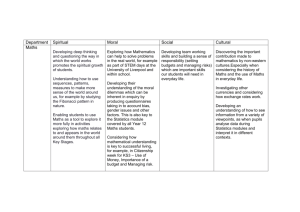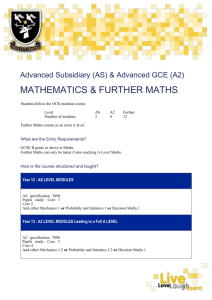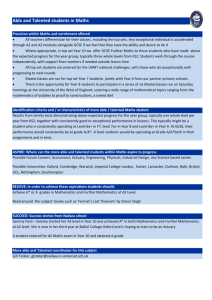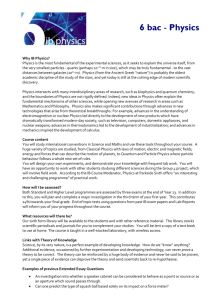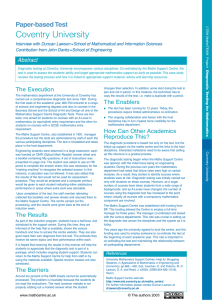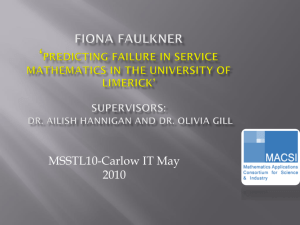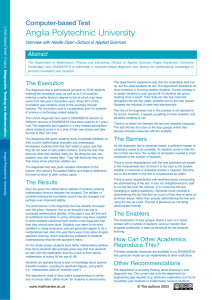Mathematics Skills/Diagnostic Testing
advertisement
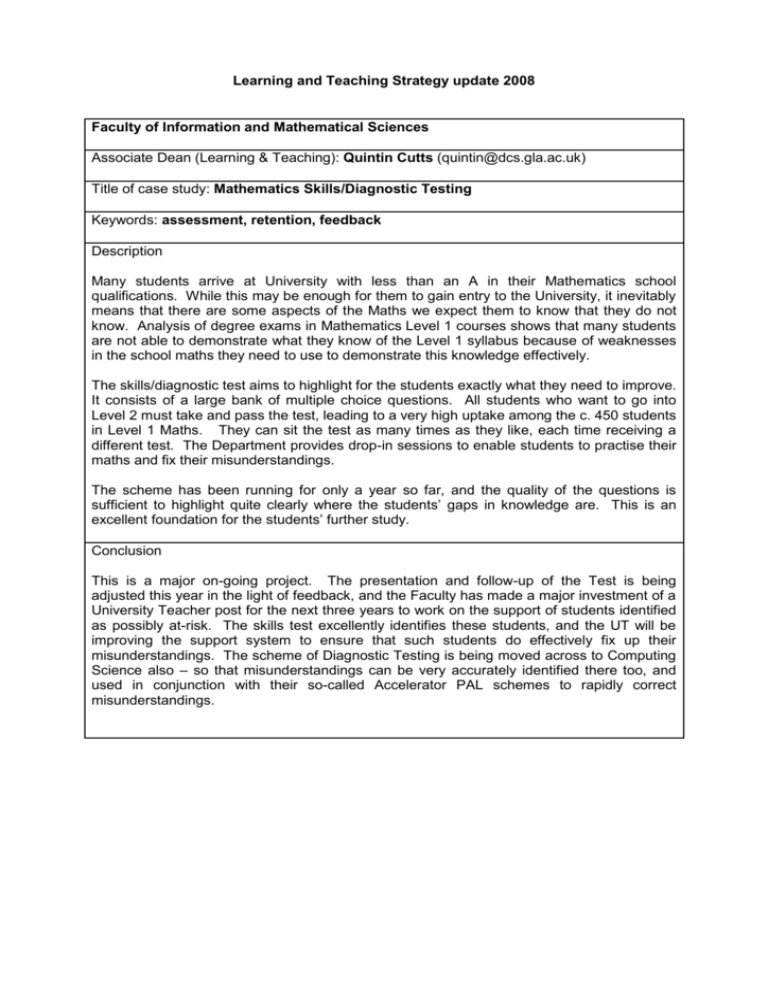
Learning and Teaching Strategy update 2008 Faculty of Information and Mathematical Sciences Associate Dean (Learning & Teaching): Quintin Cutts (quintin@dcs.gla.ac.uk) Title of case study: Mathematics Skills/Diagnostic Testing Keywords: assessment, retention, feedback Description Many students arrive at University with less than an A in their Mathematics school qualifications. While this may be enough for them to gain entry to the University, it inevitably means that there are some aspects of the Maths we expect them to know that they do not know. Analysis of degree exams in Mathematics Level 1 courses shows that many students are not able to demonstrate what they know of the Level 1 syllabus because of weaknesses in the school maths they need to use to demonstrate this knowledge effectively. The skills/diagnostic test aims to highlight for the students exactly what they need to improve. It consists of a large bank of multiple choice questions. All students who want to go into Level 2 must take and pass the test, leading to a very high uptake among the c. 450 students in Level 1 Maths. They can sit the test as many times as they like, each time receiving a different test. The Department provides drop-in sessions to enable students to practise their maths and fix their misunderstandings. The scheme has been running for only a year so far, and the quality of the questions is sufficient to highlight quite clearly where the students’ gaps in knowledge are. This is an excellent foundation for the students’ further study. Conclusion This is a major on-going project. The presentation and follow-up of the Test is being adjusted this year in the light of feedback, and the Faculty has made a major investment of a University Teacher post for the next three years to work on the support of students identified as possibly at-risk. The skills test excellently identifies these students, and the UT will be improving the support system to ensure that such students do effectively fix up their misunderstandings. The scheme of Diagnostic Testing is being moved across to Computing Science also – so that misunderstandings can be very accurately identified there too, and used in conjunction with their so-called Accelerator PAL schemes to rapidly correct misunderstandings.

